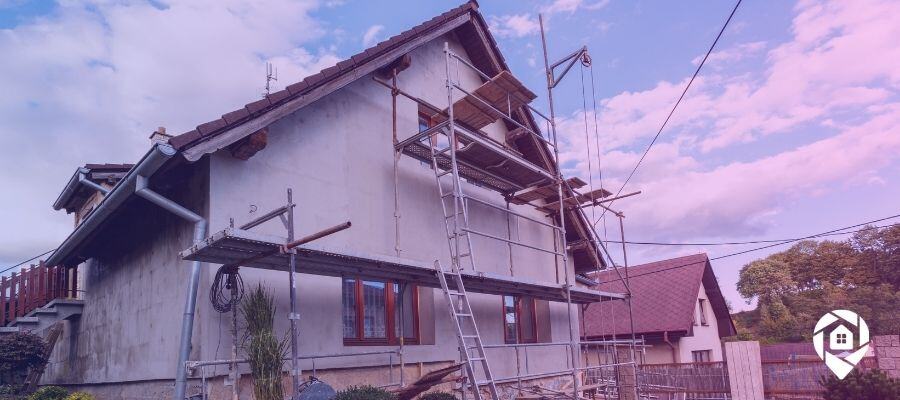
Unleash Your Entrepreneurial Spirit: How to Start a House Flipping Business

If you've ever watched reality television shows like "Flip This House" and "Fixer Upper," then you've witnessed the thrill and profit potential of the house flipping industry. Many individuals are drawn to this exciting realm of real estate investing for both its monetary and psychological benefits.
Yet, starting a house flipping business involves more than just buying a property, adding a splash of paint, and reselling for profit. In this guide, we will walk you through the essential steps to starting a successful house-flipping business and the tools you'll need to make your business thrive.
Why Start a House Flipping Business?
The idea of flipping houses has a certain appeal to many. Firstly, you're investing in a tangible asset – real estate – and one that has the potential for significant ROI. Second, there's a sense of achievement in renovating a rundown property and changing its narrative. Lastly, house flipping can be the ticket to financial independence for those who hone the right skills and invest wisely.
Understanding House Flipping
House flipping simply refers to the process of buying properties at a lower price (typically because they are in need of repair), improving them, and then selling them for a profit. The concept of a real estate flip, thus, hinges on 'quick profit'. It’s a business strategy that requires research, funding, an understanding of property renovation, and a sharp sense of real estate market trends.
Becoming a house flipper doesn’t happen overnight. It takes time and careful planning. Here are the critical steps you will need to follow to establish your house-flipping business.
- Research: This involves understanding the real estate market, knowing your potential buyers, and learning about property values. You'll need to find neighborhoods that have high potential for growth and properties that are undervalued.
- Funding: Secure the necessary funds for your investment. This could be your personal savings, a bank loan, private lenders, or real estate crowdfunding platforms.
- Property Acquisition: After enough research and securing funds, the next step is to purchase your first property. This involves negotiating with the seller, doing a title search, and closing the deal.
- Renovation: Based on a predefined budget, renovate the property. Hiring a reliable contractor is essential. The extent of renovation depends on the condition of the property and can range from a fresh coat of paint to arranging a complete overhaul.
- Selling: Once the property is in shipshape, the final step is to sell it at a profitable price. You need effective marketing strategies to attract potential buyers.
Building Your Flipping Business
On the business side of a real estate flipping business, here are a few steps you can take in order to increase the probability of your success. Now if you are just getting started in real estate, some of these steps might better serve you in the future than where you are currently at in your journey.
Creating a Business Plan
A comprehensive business plan is your roadmap to success in the house-flipping industry. This crucial document should outline your business goals, target market, and competitive landscape. It can also forecast potential financial hurdles and operating costs. Then you'll be able to more strategically allocate your budget.
By setting clear, measurable objectives, your business plan serves as a foundation for decision-making and helps attract potential investors by showcasing your preparedness and strategic vision. Remember, a well-thought-out business plan reflects your commitment to the venture's success and helps you navigate the challenges of the real estate market.
Assembling a Qualified Team
No successful house-flipping business is a one-person show. Building a team of skilled professionals is paramount. Forge a relationship with a reliable real estate agent knowledgeable about local market trends and property values. Next, hire an experienced contractor who can execute renovations efficiently and cost-effectively. Legal advisors can help navigate property laws, zoning regulations, and contract specifics, while financial advisors or accountants can manage your venture’s profitability and tax compliance.
Each team member plays a pivotal role, contributing their expertise to avoid unforeseen pitfalls, ensuring each project aligns with industry standards and legal parameters, and ultimately securing your business's profitability and reputation.
Understanding and Managing Business Finances
Effective financial management goes beyond securing funds for your next project. It involves meticulous financial planning, from budgeting for renovations to contingency funds for unexpected expenses. Separate your business finances from personal accounts to streamline cash flow tracking and tax obligations.
Educate yourself on real estate investment tax implications and potential deductions. Reinvest profits to stimulate business growth, and consider various financing options to reduce dependency on traditional bank loans. By mastering financial management, you safeguard your business from common financial pitfalls, ensuring sustainable growth and profitability in the competitive house-flipping market.
Branding & Marketing Your Business
Establishing a robust brand identity for your house flipping business sets you apart in the saturated real estate market. Begin with a memorable business name and logo that resonate with your target audience.
Develop an online presence, including a professional website showcasing your portfolio, client testimonials, and contact information. Leverage social media platforms to share before-and-after images, renovation progress, and success stories.
Attend local real estate networking events and invest in digital marketing to enhance your visibility. Effective branding and strategic marketing not only build credibility but also attract potential investors and buyers, facilitating long-term success.
Legal Considerations and Compliance
Navigating the legal landscape is critical in house flipping. Ensure compliance with state regulations and local property laws, understanding that requirements can vary significantly by location. Obtain necessary permits before commencing renovations, and invest in appropriate insurance to protect against liabilities.
Consult with legal professionals to understand contract intricacies and safeguard your interests during property transactions. Stay informed about zoning laws, environmental regulations, and historical site considerations, as non-compliance can result in costly legal battles and fines. Proactively addressing legal considerations preserves your business's reputation, ensures smooth transaction processes, and fosters a sense of trust among investors and clients.
Learning from Failure – A Realistic Perspective
The reality of house flipping isn't as seamless as portrayed on TV. It's rife with challenges, from unexpected structural issues within properties to fluctuating real estate markets. Some shows do a good job highlighting this, others not so much.
Adopting a realistic perspective is key. Understand that not every flip is profitable and unforeseen complications are part of the learning curve. Analyze failures and near-misses as opportunities for growth: evaluate what went awry, revise your strategies, and fortify your approach. Connect with other real estate professionals to gain insights and advice, ensuring you're not isolated with your difficulties.
By maintaining resilience, continuously educating yourself, and adapting your strategies, you transform obstacles into stepping stones toward your ultimate goal of a successful, sustainable house-flipping business.
Risks Involved And How To Mitigate Them
It's essential to have a realistic understanding of flipping real estate risks. These can include unexpected renovation costs, difficulty selling the house, and market fluctuations. To mitigate these risks, conduct thorough research, budget responsibly, and always have a contingency plan.
Remember, house flipping is more than just a get-rich-quick scheme. It’s a business that requires diligence, patience, and strategic thinking. By understanding the basics of house flipping, arming yourself with the right tools, and navigating the risks involved, you're taking a solid first step towards becoming a successful real estate investor.
Embark on your journey towards starting a house flipping business today. Happy flipping!

About Samantha Ankney
Samantha is the Social Media Manager at DealMachine, where she oversees all social media strategies and content creation. With 4 years of experience at the company, she originally joined as a Media Specialist, leveraging her skills to enhance DealMachine's digital presence. Passionate about connecting with the community and driving engagement, Samantha is dedicated to sharing valuable insights and updates across all platforms.



